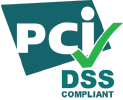In September 2021, the independent, non-profit Hechinger Report published an article whose opening lines directly addressed the topic of this blog post. The headline read: OPINION: Meet certificates and “microcredentials” — they could be the future of higher education. The subhead was even more pointed: In years to come, they will become prevalent — and possibly preferred — to college degrees. In this article let’s dive deeper into this question: can micro-credentials replace college degrees?


The article expressed the opinion of two eminent educators.
One is Arthur Levine, “Distinguished Scholar of Higher Education at New York University and president emeritus of the Woodrow Wilson National Fellowship Foundation and Teachers College, Columbia University.” The other is Scott Van Pelt, described as “the associate director of the communications program at The Wharton School.”
Levine and Van Pelt point out that some of the most prominent corporations in America – labeled “marque employers” – no longer require college degrees when hiring. Their list included Google, Ernst and Young, Hilton, Apple, IBM, and Bank of America, among others.
Now look at this from a slightly different angle.
Last year, the Strada Center for Education Consumer Insights reported that 70 percent of adults with an associate degree and a nondegree credential thought their education made them attractive job candidates. Meanwhile, only 43 percent of adult associate degree holders without a nondegree credential felt the same.
The suggestion that nondegree credentials – which can easily be digital – enhance career outcomes is supported by other research referenced in a recent Fortune.com article.
It reported that shorter-term, nondegree credentials increased annual earnings by between $2000 and $6500 – at a fraction of the cost associated with a bachelor’s degree. It also pointed out that a BA might cost up to $50,000 while nondegree credentials are available for under $5000.
Now consider this key finding of a recent investigation into the impact of stackable credentials in Ohio, by the Rand Corporation:

“On average, individuals who earned a postsecondary certificate in Ohio saw a 16% increase in earnings, and individuals who stacked multiple credentials saw a 37% increase in earnings (approximately $9,000 in earnings annually).”
If you found that noteworthy, what comes next is just plain shocking.
Georgetown University’s Center on Education and the Workforce (CEW) has produced a database that ranks 4,500 colleges and universities based on their return on investment (ROI).
According to a February 2022 yahoo!news article, a CEW report released with the database indicates that “Twenty-five of the 30 institutions with the best short-term net economic gains primarily grant certificates or associate’s degrees.”
The report went on to state, “Because these programs require fewer credits to complete, they generally leave students with less debt and allow them to enter the workforce sooner. In the long run, however, the returns of these programs fall behind those of bachelor’s degree granting institutions because students’ long-term earnings are lower.”
The fact is that many individuals choose not to earn a baccalaureate degree. National Center for Education Statistics tracking reveals that in 2021, among U.S. adults aged 25 and above, only 37.9% had a bachelor’s or advanced degree.
Meanwhile, in December 2021, Accredible Marketing Manager, Cody Gondyke, presented an end-of-year webinar addressing the State of Digital Credentials 2022. (Accredible is a Kryterion business partner.)
According to Gondyke, the total number of digital credentials issued in 2021 grew by 67% year over year.
That’s a lot to think about!
The world of credentials is changing. There are more choices than ever. Have questions about which type of credential to consider for your current or future credentialing program? Why not schedule a free, no-obligation, no-stress, 30-minute call with one of our friendly (and really smart) psychometricians? Just click here to get started. Talk soon!







